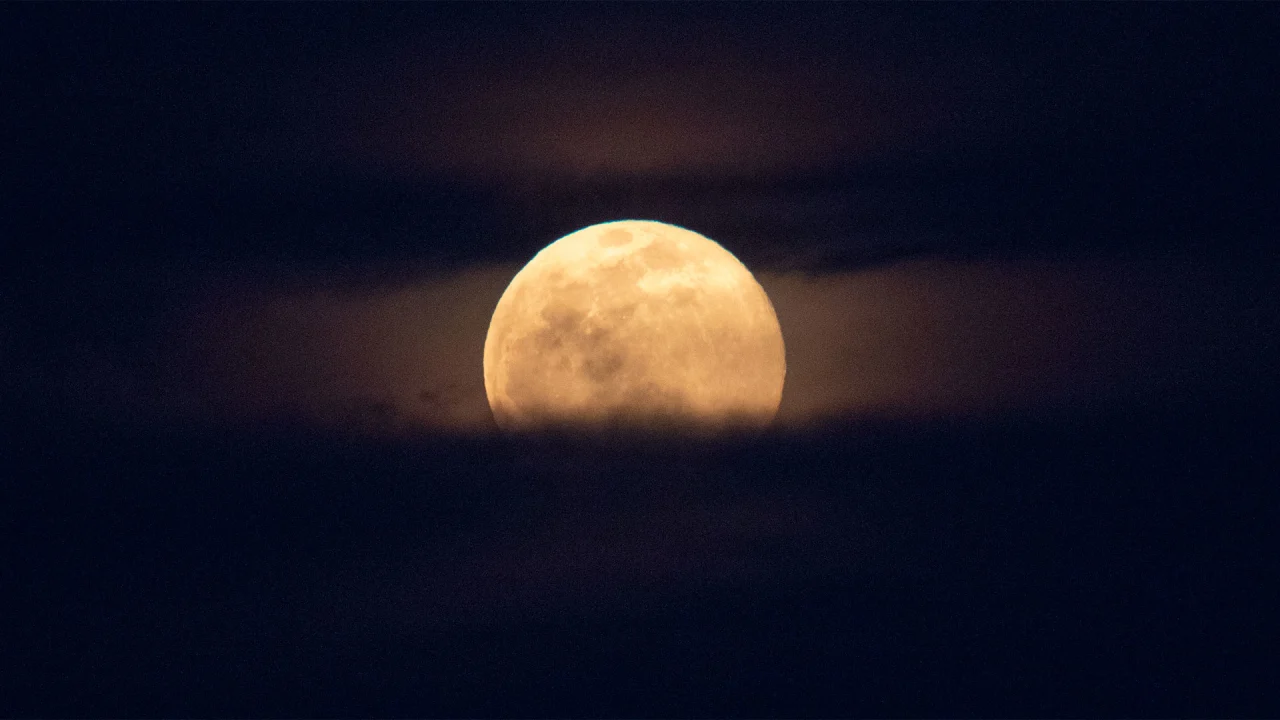A rare ‘Super Harvest Blood Moon’ is coming tonight: Here’s when to see it and what it means
It’s hard not to get swept away by the magic and mystery of the night sky. If you find yourself waxing poetic about the planets and stars, we have news for you about tonight’s full moon. This evening (Tuesday, September 17), look up to see a triple threat. It’s giving “super,” “harvest,” and “blood” vibes all in one—the likes of which won’t happen again until 2042. Let’s break down what the heck that means and why it’s so rare. The art of the moon The moon has long been a muse for the arts. The oldest example of this was discovered in the Lebombo Mountains and is believed to be around 35,000 years old. Not much is known about the Lebombo bone, but it has 29 notches and is believed to measure the moon cycle. Another early example comes from Germany and, beyond being beautiful, is also believed to be an ancient star map. The Nebra Sky Disc could be around 3,600 years old. It is made of bronze with gold inlays. In more modern times, a troubled Vincent van Gogh looked to the glowing figure from the window of the asylum at St.-Rémy-de-Provence. He was inspired to create the now iconic painting “Starry Night” as a result, which features a crescent moon in the upper right corner. What is a super moon? This phenomenon occurs when the full moon happens at the same time as Perigee, which means the moon is at its closest point in its orbit to Earth. The moon will look 14% bigger and 30% brighter. This only happens a couple of times a year. What about the blood part? That’s not all that is happening tonight. There is also a partial lunar eclipse, which will make the moon appear bloody because the Earth will block some sunlight from fully hitting it. It may also look like someone took a bite out of the moon. What about the harvest part? Full moons are given names by the Old Farmer’s Almanac. These monikers celebrate what is going on in the natural world and often utilize names given by the Indigenous tribes of North America. September’s moon recognizes the beginning of the corn harvests. When is the best time to view the full moon? The moon will be fullest tonight (Tuesday, September 17) at around 10:35 p.m. EDT, according to NASA. To the naked eye, it will appear full a day before and several days after its peak. The best time to see the “bite” is between 10:12 and 11:15 p.m.

It’s hard not to get swept away by the magic and mystery of the night sky. If you find yourself waxing poetic about the planets and stars, we have news for you about tonight’s full moon.
This evening (Tuesday, September 17), look up to see a triple threat. It’s giving “super,” “harvest,” and “blood” vibes all in one—the likes of which won’t happen again until 2042. Let’s break down what the heck that means and why it’s so rare.
The art of the moon
The moon has long been a muse for the arts. The oldest example of this was discovered in the Lebombo Mountains and is believed to be around 35,000 years old. Not much is known about the Lebombo bone, but it has 29 notches and is believed to measure the moon cycle.
Another early example comes from Germany and, beyond being beautiful, is also believed to be an ancient star map. The Nebra Sky Disc could be around 3,600 years old. It is made of bronze with gold inlays.
In more modern times, a troubled Vincent van Gogh looked to the glowing figure from the window of the asylum at St.-Rémy-de-Provence. He was inspired to create the now iconic painting “Starry Night” as a result, which features a crescent moon in the upper right corner.
What is a super moon?
This phenomenon occurs when the full moon happens at the same time as Perigee, which means the moon is at its closest point in its orbit to Earth. The moon will look 14% bigger and 30% brighter. This only happens a couple of times a year.
What about the blood part?
That’s not all that is happening tonight. There is also a partial lunar eclipse, which will make the moon appear bloody because the Earth will block some sunlight from fully hitting it. It may also look like someone took a bite out of the moon.
What about the harvest part?
Full moons are given names by the Old Farmer’s Almanac. These monikers celebrate what is going on in the natural world and often utilize names given by the Indigenous tribes of North America. September’s moon recognizes the beginning of the corn harvests.
When is the best time to view the full moon?
The moon will be fullest tonight (Tuesday, September 17) at around 10:35 p.m. EDT, according to NASA. To the naked eye, it will appear full a day before and several days after its peak. The best time to see the “bite” is between 10:12 and 11:15 p.m.






















